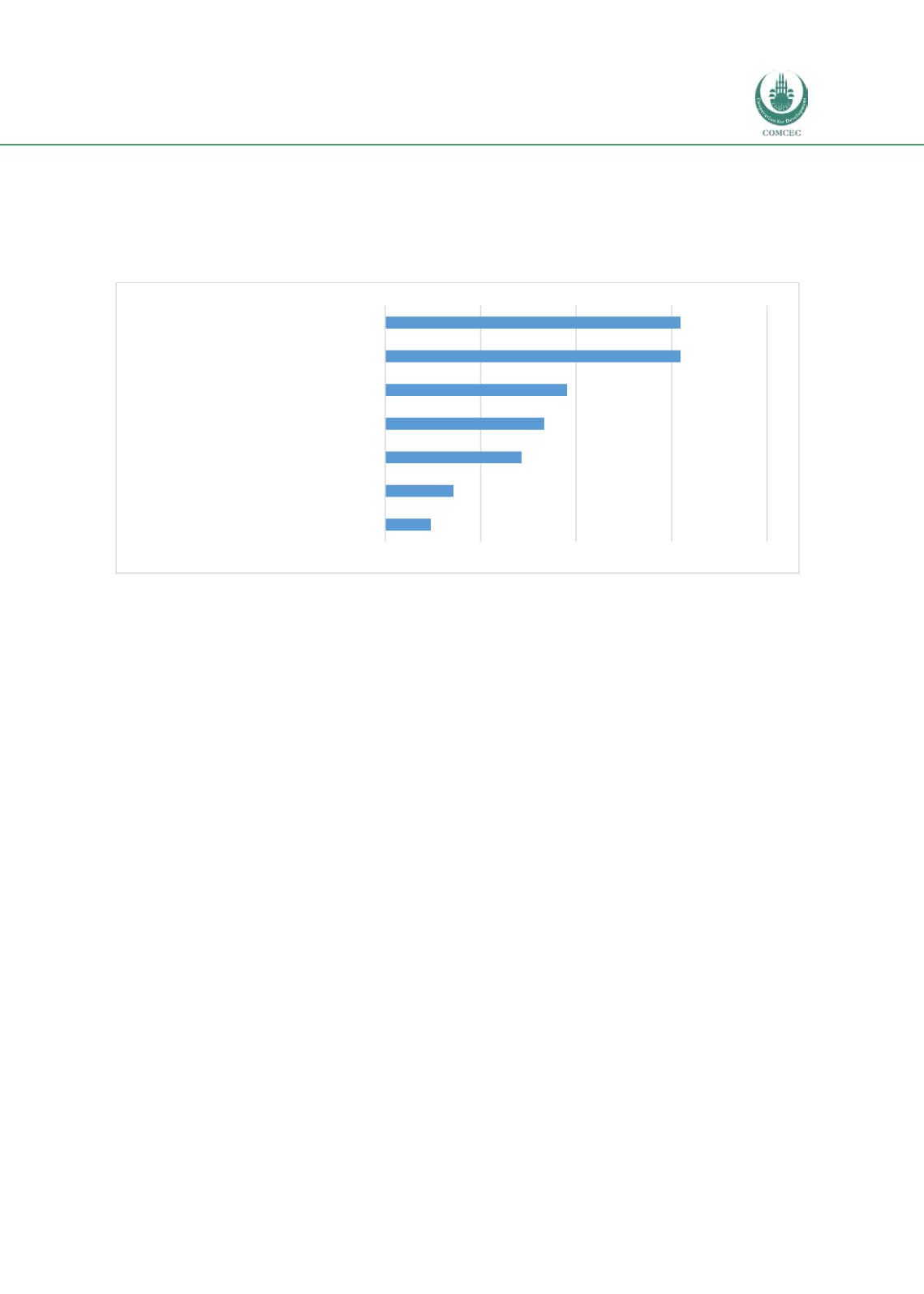

Improving Agricultural Market Performance:
Developing Agricultural Market Information Systems
67
of sharing data (e.g. via APIs) in order to facilitate retrieval and analysis of data. Governments
can also play an important role in assuring the reliability of information by ground-truthing data
and monitoring data sources. The respondents also advocated that governments should provide
funding for MIS, thereby assuring longevity.
Figure 27: Challenges Facing MIS Providers
Source : Online Survey Findings
4.6
CONCLUSIONS ON REVIEW OF MIS IN THE OIC COUNTRIES AND
ONLINE SURVEY REPORT
It has been shown from the discussions in this chapter that MIS in OIC countries is moving from
the 1GMIS to more advanced forms of 2GMIS as is happening globally. The transition includes
both government-run and private MIS as well as national, regional and international platforms.
In most of the Arab Group of OIC countries, public-run MIS are the most dominant. This appears
to reflect the policy emphasis on mitigating the effects of price shocks on the local population,
especially for imported food products such as wheat. In this Group, dissemination of national
price information tends to be reinforced with tracking forecast domestic and international
output of the strategic imported food produce. Though the price and other information which is
disseminated is targeted at a wide range of actors in the relevant agricultural value chains, the
main users are policymakers and officials of donor agencies working on food security issues.
These parties monitor information in order to determine actions necessary to moderate spikes
in international prices, including setting domestic wholesale and retail prices. Their actions are
supported by a range of public institutions, including specific working committees which
coordinate public and donor actions. Uptake of such information by private actors is, therefore,
quite limited.
In the Asian and African Groups of OIC member countries, similar MIS and supporting public
institutions exist for purposes of assuring national food security. However, is some Asian Group
OIC countries such as Malaysia, which have thriving agricultural exports (e.g. palm oil products),
market institutions including commodity exchanges have been set up to promote efficient
produce marketing. In such markets, market information does not only consist of transparently-
discovered prices but also analysis of price trends and monitoring of relevant supply and
62%
62%
38%
33%
29%
14%
10%
Lack of funding
Difficulty of collecting accurate data
Lack of regulatory framework
Difficulty to generate revenue
Lack of (connection to) commodity…
Difficulty of reaching target audiences
Other


















